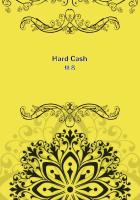Actually the saltness seems to be due to the same cause as in the case of the residual liquid that gathers in the bladder. That, too, becomes bitter and salt though the liquid we drink and that contained in our food is sweet. If then the bitterness is due in these cases (as with the water strained through lye) to the presence of a certain sort of stuff that is carried along by the urine (as indeed we actually find a salt deposit settling in chamber-pots) and is secreted from the flesh in sweat (as if the departing moisture were washing the stuff out of the body), then no doubt the admixture of something earthy with the water is what makes the sea salt.
Now in the body stuff of this kind, viz. the sediment of food, is due to failure to digest: but how there came to be any such thing in the earth requires explanation. Besides, how can the drying and warming of the earth cause the secretion such a great quantity of water; especially as that must be a mere fragment of what is left in the earth? Again, waiving the question of quantity, why does not the earth sweat now when it happens to be in process of drying? If it did so then, it ought to do so now. But it does not: on the contrary, when it is dry it graws moist, but when it is moist it does not secrete anything at all. How then was it possible for the earth at the beginning when it was moist to sweat as it grew dry?
Indeed, the theory that maintains that most of the moisture departed and was drawn up by the sun and that what was left over is the sea is more reasonable; but for the earth to sweat when it is moist is impossible.
Since all the attempts to account for the saltness of the sea seem unsuccessful let us explain it by the help of the principle we have used already.
Since we recognize two kinds of evaporation, one moist, the other dry, it is clear that the latter must be recognized as the source of phenomena like those we are concerned with.
But there is a question which we must discuss first. Does the sea always remain numerically one and consisting of the same parts, or is it, too, one in form and volume while its parts are in continual change, like air and sweet water and fire? All of these are in a constant state of change, but the form and the quantity of each of them are fixed, just as they are in the case of a flowing river or a burning flame. The answer is clear, and there is no doubt that the same account holds good of all these things alike. They differ in that some of them change more rapidly or more slowly than others; and they all are involved in a process of perishing and becoming which yet affects them all in a regular course.
This being so we must go on to try to explain why the sea is salt.
There are many facts which make it clear that this taste is due to the admixture of something. First, in animal bodies what is least digested, the residue of liquid food, is salt and bitter, as we said before. All animal excreta are undigested, but especially that which gathers in the bladder (its extreme lightness proves this; for everything that is digested is condensed), and also sweat; in these then is excreted (along with other matter) an identical substance to which this flavour is due. The case of things burnt is analogous. What heat fails to assimilate becomes the excrementary residue in animal bodies, and, in things burnt, ashes. That is why some people say that it was burnt earth that made the sea salt. To say that it was burnt earth is absurd; but to say that it was something like burnt earth is true. We must suppose that just as in the cases we have described, so in the world as a whole, everything that grows and is naturally generated always leaves an undigested residue, like that of things burnt, consisting of this sort of earth. All the earthy stuff in the dry exhalation is of this nature, and it is the dry exhalation which accounts for its great quantity. Now since, as we have said, the moist and the dry evaporations are mixed, some quantity of this stuff must always be included in the clouds and the water that are formed by condensation, and must redescend to the earth in rain.
This process must always go on with such regularity as the sublunary world admits of. and it is the answer to the question how the sea comes to be salt.
It also explains why rain that comes from the south, and the first rains of autumn, are brackish. The south is the warmest of winds and it blows from dry and hot regions. Hence it carries little moist vapour and that is why it is hot. (It makes no difference even if this is not its true character and it is originally a cold wind, for it becomes warm on its way by incorporating with itself a great quantity of dry evaporation from the places it passes over.) The north wind, on the other hand, comb ing from moist regions, is full of vapour and therefore cold. It is dry in our part of the world because it drives the clouds away before it, but in the south it is rainy; just as the south is a dry wind in Libya. So the south wind charges the rain that falls with a great quantity of this stuff.
Autumn rain is brackish because the heaviest water must fall first; so that that which contains the greatest quantity of this kind of earth descends quickest.
This, too, is why the sea is warm. Everything that has been exposed to fire contains heat potentially, as we see in the case of lye and ashes and the dry and liquid excreta of animals. Indeed those animals which are hottest in the belly have the hottest excreta.
The action of this cause is continually ****** the sea more salt, but some part of its saltness is always being drawn up with the sweet water. This is less than the sweet water in the same ratio in which the salt and brackish element in rain is less than the sweet, and so the saltness of the sea remains constant on the whole. Salt water when it turns into vapour becomes sweet, and the vapour does not form salt water when it condenses again. This I know by experiment.














